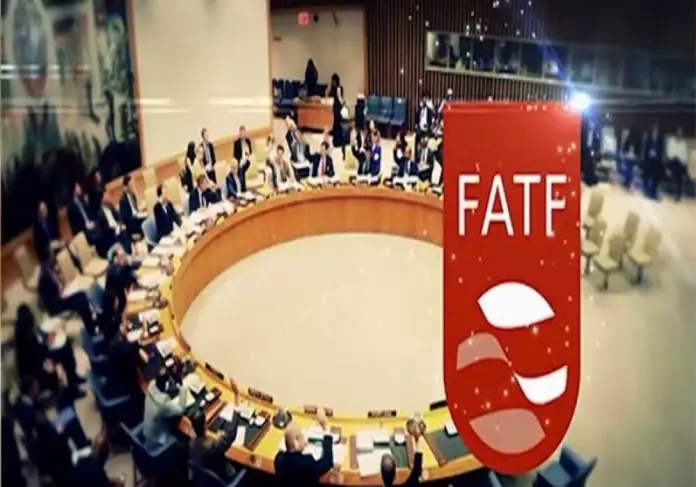The Financial Action Task Force (FATF) is an international organisation founded in 1989 on the initiative of the G7 countries (USA, UK, Germany, France, Canada, Italy, and Japan) to develop strategies to fight against money laundering and terrorist funding. The aims of FATF are to promote effective implementation and set standards for effective implementation of operational, regulatory, and legal measures for opposing terrorist funding, money laundering, and other associated threats to the integrity of the global financial system. Also, it is working to generate the essential political will to bring national regulatory and legislative reforms in these areas by monitoring progress in applying its recommendations via mutual evaluations of member countries.
The FATF’s decision to keep Pakistan on its so-called grey list despite Pakistan’s substantial progress on the creative action plan has upset Pakistan. So far, it is an opportunity to strengthen implementation to prove to the global community that the state is a responsible entity and is willing to do what is expected of it to make the world a secure place. This is the government’s position on money laundering and terrorism financing. Efforts are made to check the illegal flow of money and corruption in the country, as the main beneficiary of the practice to stop money laundering and terrorism financing would be the country’s economy and citizens of Pakistan. The actions implemented, so far, to meet the 27-point FATF action plan have already increased helped the economy, providing more room to grow it.
Pakistan’s anti-corruption regulator has recognised many anti-terror financing and money laundering cells to keep an eye on the illegal transfers of resources and financial crimes as the country fights to exit from the FATF’s grey list. The Paris-based organisation asked Pakistan’s government to devise a plan of action to control terror financing and money laundering by the end of 2019, but the deadline was extended due to the COVID-19 pandemic.
The National Accountability Bureau (NAB) has taken serious actions as Pakistan is trying very hard to get out of the grey list of FATF. The move comes after FATF retained Pakistan on its grey list for failing to check money laundering leading to terror financing, ordering Pakistan government to prosecute and investigate senior commanders and leaders of the UN-designated terror groups, including Masood Azhar and Hafiz Saeed. Moreover, FATF asked Pakistan to work to address its strategically vital insufficiencies.
FATF is used by global powers as a political tool to put pressure on countries like Pakistan. There are examples where the global watchdog delisted other jurisdictions under its enhanced monitoring even though they had done far less than Pakistan to tighten their control over the flow of illegal money. Thus, the feeling that India is misusing the FATF platform against Pakistan, as voiced by our foreign minister, is not entirely misplaced. There are many others who are calling for FATF to first take action against the European countries believed to be the major hubs of illicit money before forcing Pakistan to meet its standards. These are legitimate concerns, and Pakistan should ask for the fair application of the Anti-Money Laundering and Combating the Financing of Terrorism rules everywhere.
Not to forget, FATF has consistently been emphasising the complete execution of its action plan for Pakistan to get off the list. Yet some of us have failed to properly read the message of the watchdog after its review meetings, hoping that we still have enough geopolitical weight to get off the list without having to fully comply with the FATF’s demands. This time, however, the FATF president has said clearly that Pakistan will remain on the list as long as it does not address the single remaining action related to the investigation and prosecution of senior leaders and commanders of UN-designated terror groups, as well as the items on a parallel action plan handed out by FATF’s regional partner, the Asia Pacific Group, in 2019.
Pakistan is also required to ensure that its law-enforcement agencies cooperate internationally to trace, freeze, and confiscate the assets of the designated individuals and entities. More political will is needed to fully comply with the two action plans as the failure to do so will impose heavy costs on Pakistan. Our government must swing into action to fulfil the remaining conditions in order to avoid the serious consequences of delay and inaction.
Politicians of Pakistan are still unable to perform their duties on an exceptional basis towards a prosperous Pakistan. Regarding the status of Pakistan in front of the world community, we want to ask why FBR’s most prestigious wing, Intelligence and Investigation, does not take action before the end of the government’s tenure. The nation demands an answer from NAB why it always acts after a certain government completes its tenure. Why does NAB not act against big real estate investors and business tycoons and always demand more tax from small businessmen?
In Pakistan, fake companies exist, moving through the FBR, and looting money by tax evasion. The nation expects that the new Chairman FBR Dr Muhammad Ashfaq Ahmed will take serious action against all the fake companies registered with the FBR as he has taken an oath to make Pakistan a prosperous country. The inflation is at its peak with the record-breaking fuel price of PKR 127.30. The common man is facing difficulties to make ends meet as fuel prices are directly related to inflation. The nation that is suffering for the last several decades demands a trial of every person and every politician involved in tax fraud and money laundering.







